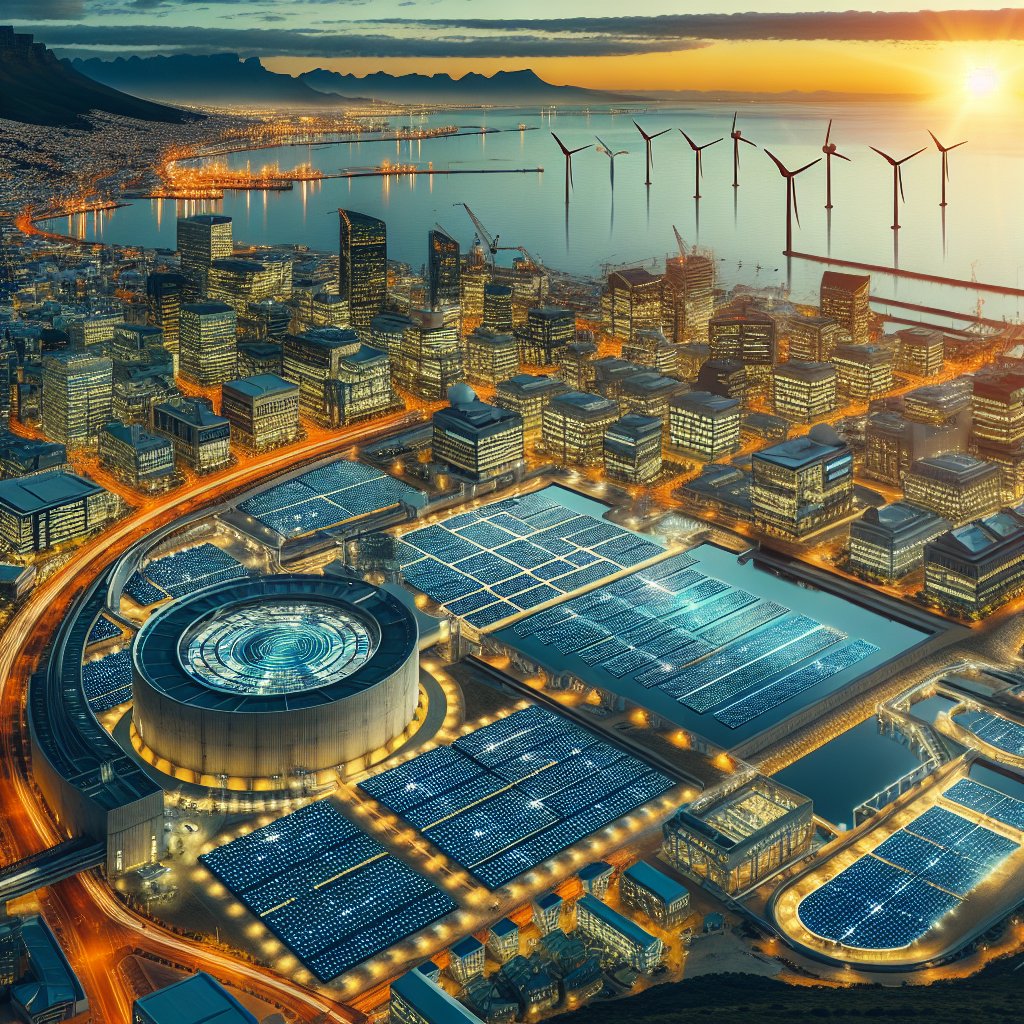Image created by AI
Cape Town Powers Forward with R14.6 Million Solar Project at Kraaifontein Wastewater Plant
Cape Town has marked a milestone in its journey towards sustainable energy independence with the completion of a R14.6 million solar energy project at the Kraaifontein Wastewater Treatment Plant. This achievement is part of the broader, small-scale embedded generation programme (SSEG), which has seen the City invest R20.6 million in the development of three renewable energy installations at municipal sites.
The 990kWp Kraaifontein project spearheads the SSEG initiative, complemented by a 330kWp facility at the Goodwood Transport Management Centre, and a 125kWp installation at the Gugulethu Electricity Depot. These projects are strategically designed to curb the dependence on national utility Eskom's fluctuating electricity supply, ushering in a more resilient and green future for the community.
The construction of the solar plant at the northern suburb wastewater facility commenced toward the end of 2023 and reached completion by May of the following year. It stands as a beacon of the metro's commitment to environmental stewardship, touted to produce an impressive 1.5 GWh of clean energy annually. The city forecasts a significant R2.4 million in cost savings from this venture, lightening the financial load and enhancing the efficiency of municipality-run services.
Alderman Xanthea Limberg, the Mayoral Committee Member for Energy, highlighted the broader implications of the project. "This programme contributes toward the reduction of greenhouse gases by providing an alternative to electricity generated from fossil fuels," she stated. The move aligns with South Africa's commitment to international climate agreements by actively reducing its emissions.
The City of Cape Town is not stopping there; an ambitious plan to overhaul and maintain its electricity grid with a budget exceeding R4 billion over the next three years has been announced. This development is intended to prepare for a decentralized energy future that the metro envisions. In line with its vision, the city targets the integration of 1 GW of independent power supply over time, with the immediate goal of safeguarding against up to four stages of load-shedding by 2026.
As the Cape Town community embraces renewable solutions, it demonstrates the potential for urban centers to take the lead in combating climate change while enhancing their energy resilience in the face of national power instability.










